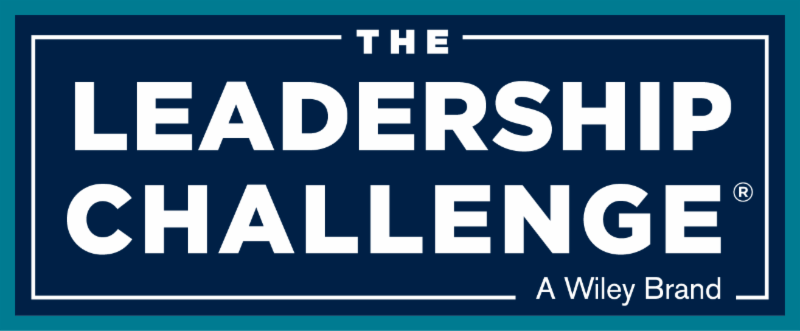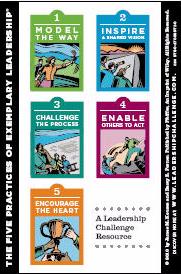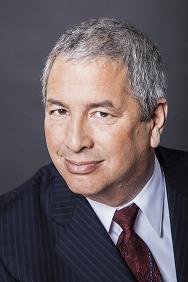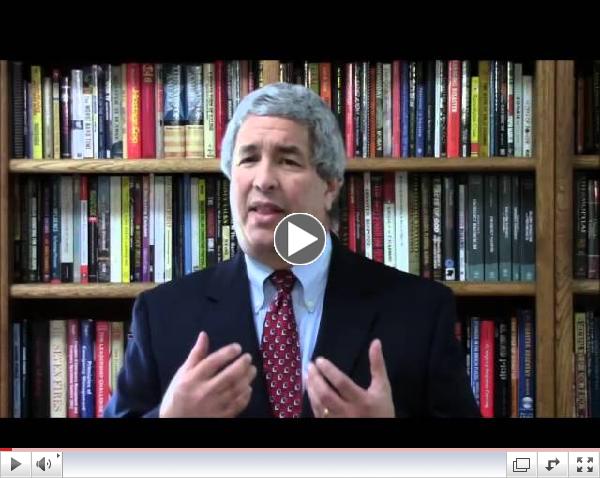 |
|
|
| Oroville Dam Spillway Collapse |
Lake Oroville is California's second largest man-made lake, holding some 3.5 million acre-feet of water, and the dam is the tallest in the United States. Heavy rains this winter filled the lake to capacity and water officials opened the spillway for the first time since the dam was constructed. It failed dramatically, forcing the use of an emergency spillway that was not concrete lined. This video shows the spillway in use before the failure and shows the damage that resulted. At the 2:00 minute mark, the video shows the erosion of the emergency spillway which was not concrete lined. Just after the 4:00 minute mark you can see the heavy erosion to the right of the spillway caused by the water overflowing the damaged section of the spillway. Ironically, California has the best dam inspection program in the country.
|
The following are excerpts from my blog
Canton on Emergency Management. Please visit my blog to see the rest of my articles.
When disaster strikes, social isolation can be the difference between life and death for special needs populations.
|

What Is The Leadership Challenge?
 Is leadership a learned behavior or an innate personality trait? While there are certainly naturally charismatic individuals who are considered "born leaders", leadership is a measurable set of behaviors that can be learned and taught. This is the conclusion arrived at by researchers Jim Kouzes and Barry Posner after years of rigorous research. Starting in 1982, Kouzes and Posner set out to understand what happened when leaders performed at their personal best. They conducted hundreds of interviews and reviewed hundreds of cases studies and survey questionnaires. What emerged were five fundamental practices common to extraordinary leadership achievements:
Is leadership a learned behavior or an innate personality trait? While there are certainly naturally charismatic individuals who are considered "born leaders", leadership is a measurable set of behaviors that can be learned and taught. This is the conclusion arrived at by researchers Jim Kouzes and Barry Posner after years of rigorous research. Starting in 1982, Kouzes and Posner set out to understand what happened when leaders performed at their personal best. They conducted hundreds of interviews and reviewed hundreds of cases studies and survey questionnaires. What emerged were five fundamental practices common to extraordinary leadership achievements:
- Model the Way
- Inspire a Shared Vision
- Challenge the Process
- Enable Others to Act
- Encourage the Heart
The Leadership Challenge begins with a 360-degree assessment of thirty leadership behaviors associated with the five practices, the Leadership Practices Inventory. The results are used to identify opportunities for improving as a leader by increasing the frequency of specific behaviors. Based on over thirty years of research, the Leadership Challenge is an effective and practical tool for leadership development.
To find out more about the
Five Practices of Exemplary Leadership
, consider taking
The Leadership Challenge
. Just click on the icon below for more information:
|
|
| Click here to take The Leadership Challenge |
____________________________________
The Leadership Challenge: How to Make Extraordinary Things Happen in Organizations
by James M. Kouzes & Barry Posner
|
Free Resource Guide for Solo Consultants
For solo consultants, true wealth is discretionary time. Don't waste yours on simple tasks that can be handled by technology. This free resource guide reveals the four essential online tools I use to manage my solo consulting practice and save hours of valuable time. And the best part is - they're free!
 Interested in exploring the world of consulting? My new membership site might be just the resource you need to get started. You'll have access to blogs designed to answer very specific questions, a resource library of templates and articles, the opportunity to network with peers, and discounts on coaching and training programs. Download the free guide or click on the logo above to go straight to the site.
Interested in exploring the world of consulting? My new membership site might be just the resource you need to get started. You'll have access to blogs designed to answer very specific questions, a resource library of templates and articles, the opportunity to network with peers, and discounts on coaching and training programs. Download the free guide or click on the logo above to go straight to the site.
|
 |
| My Website |


M
y Blogs
Follow Me
 |
|
Archive
|
|
|

Welcome to the March edition of Emergency Management Solutions.
I'm doing a bit of celebrating this month as I think I'm finally closing in on finishing the revised edition of my book with one more chapter to go. There's still a lot of work to be done but the end is finally in sight. I was beginning to feel like the George R.R. Martin of the emergency management world.
This is a last call for any comments, suggestions, or criticisms of the original book. Several colleagues have been kind enough to share their thoughts and it really helps. I'm past major rewrites but I can still make changes until I submit the final manuscript, so if you have any ideas for improvement, please share them.
Regards,
|
|
_________________________________________________
Who Are We?
The Case for a Competency Framework
|
|
|
The late Tom Drabek once wrote that the single most significant change in community preparedness was the increased professionalization of local emergency managers. But that change has been largely by trial and error. Emergency managers came to the field as a second career and, until recently, there was no thought given to formal education or professional development. Despite our progress, we still cannot answer the fundamental question, "What is an emergency manager?"
The question is important. If we cannot answer it, we have no way of knowing if our certification programs, course curricula, or training are adequate. We have no way to prevent an unqualified individual from claiming he or she is an emergency manager. We can't even say what it means to be "qualified."
_______________________
________
If you are having trouble viewing my featured article, try clicking on the link at the top of the page. You can always find my articles in the white paper section of my blog site,
Canton on Emergency Management.
|
|
Overcoming Speech Anxiety
When I was in high school, I was forced to take a course in public speaking. I hated it. They say that speech anxiety is one of the most common phobias. There's even a name for it: glossophobia. But public speaking is a critical part of an emergency manager's job, whether it is making a presentation to elected officials or talking before a civic group. How do you overcome when the very thought of getting in front of a group petrifies you?
Speech coach
Darren LaCroix is fond of saying that the best way to become a better speaker is, "Stage time, stage time, stage time!" Take every opportunity you can to speak before groups of all sizes and on any topic you feel comfortable talking about. He believes that the more you speak, the better you become, particularly if you have someone offering constructive criticism. It's not easy to get started but there are organizations like Toastmasters that can offer a non-threatening environment for practice and coaching.
Recognize that you are going to be nervous. I have yet to give a speech or presentation where I was not nervous at the start. Acknowledge this and use it. I do deep breathing exercises before a presentation to calm myself and pour my excess energy into my movements on stage. Speech coach
Patricia Fripp recommends memorizing your opening to help you get over your initial jitters.
Prepare and rehearse before the presentation. If you've internalized your presentation, know your topic, and have worked out the timing, the presentation should flow well on its own. But don't over rehearse and don't memorize your presentation.
Talk like you're telling a story to friends, not as if you're giving a lecture. You'll be more relaxed if you're talking normally. Try to find the fun with it. As Mary Poppins said, "If you find the fun, the job's a game!"
Professional Development Opportunities
April 17-20, 2017
New Orleans, Louisiana
This conference will examine ways to improve hurricane preparedness, response, and mitigation in the United States and the Caribbean.
April 30 to May 5, 2017
Association of Floodplain Managers
Kansas City, Missouri
This conference will focus on flood issues, mitigation, and regulations from the viewpoint of flood management in the often flooded Midwest.
May 22-23, 2017
Australia Institute of Emergency Services, Bushfire and Natural Hazards CRC, and others
Gold Coast, Australia
This conference will focus on challenges faced by emergency management professionals in Australia, New Zealand, and other regions.
N
ovember 10-15, 2017
Long Beach, California
The goal of the IAEM Annual Conference is to improve your knowledge, competency level and collaborative skills. IAEM attracts high-profile speakers to address current topics and practical solutions. The conference draws exhibitors who are the top suppliers to the fields of disaster preparedness and homeland security.
|
|
|
Specialization is for Insects
Science fiction writer Robert Heinlein offered a list of all the things a person should be able to do. It was quite an extensive list that included everything from butchering a hog to navigating a ship by the stars. He ends it with the statement, "Specialization is for insects."
While a bit harsh towards specialists, Heinlein's comments have a certain relevance for emergency managers. I have frequently said that in a world of specialists, we are the consummate generalists. We are much like the family general practitioner: we must be able to identify a problem, develop a proposed solution, and pass the problem to the appropriate specialist.
How does one become a generalist? We begin by understanding in a very broad sense the various roles that our specialists play in emergency planning. We talk to the experts, we read, we observe. We are constantly learning. We need to know enough to be able to tell when we need an expert and who that expert should be. This concept is at the core of functional based planning.
The danger in being a generalist is that it is easy to believe we know it all. Because we see interrelationships that are not always apparent to a focused specialist, we can sometimes think we know more about how they should solve a problem than they do. It is easy to cross the line between identifying what needs to be done and telling someone how to do their job. If you find yourself doing this, you need to take a step back and remember that your focus must be on the "big picture" and not on the details, on strategy rather than tactics.
Despite Heinlein's comment, specialization is not just for insects. A successful response needs both the strategy developed by the generalist and the tactics provided by the specialists. As the military strategist Sun Tzu reminded us, "Strategy without tactics is the slowest route to victory. Tactics without strategy is the noise before defeat."
|

In the Wake of the Plague: The Black Death and the World It Made
by Norman F. Cantor
One of the mistakes emergency managers make is focusing primarily on response without considering what comes next. We know from research that disasters can have a profound effect on communities. Nothing demonstrates this more than a study of the changes brought about directly or indirectly by the Black Death.
In this short book, historian Norman Cantor provides examples of how the Black Death had a profound impact on demographics, economics, and politics. Unfortunately, his approach is less than scholarly: he uses an anecdotal approach limited primarily to England and does not provide any formal citations or notes, although there is an annotated bibliography. He also makes factual errors and unsupported assumptions and is given to parenthetical comments that are sometimes intrusive.
While there are areas of interest, they are sometimes buried in confusing details and digressions. If you have an interest in the Middle Ages and enough background to sift fact from assumption then you might enjoy this book but I think the average reader will find it a bit tedious. There are much better books on the subject.
|
|

Emergency Management: Concepts and Strategies for Effective Programs
by Lucien G. Canton

|
|
Need a speaker for your next conference? I offer keynotes, seminars and workshops.
 |
|
Three Reasons Why I'm the Right Speaker for Your Conference
|
|
|
Speaking Engagements
Now taking bookings for 2017
|
|
| |
|